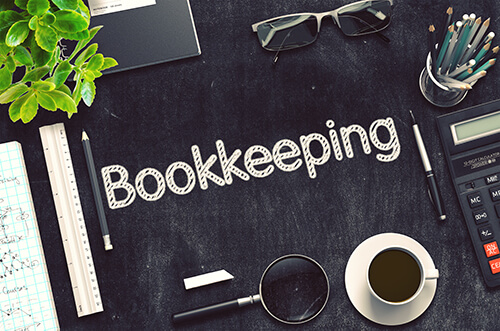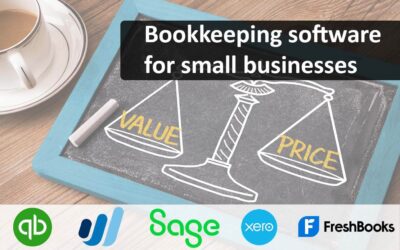Table of Contents
First impression
Warm-up questions
Qualifications & Background
Bookkeeping experience
Technical bookkeeping questions
Previous work experience
Soft skills
Availability
Companies hire bookkeepers for a particular job, like recording financial transactions and creating financial reports. A bookkeeper is also tasked with fact-checking and managing accounts receivable and accounts payable. Most bookkeepers are also required to use computer software. In addition, bookkeepers often work in a team or with a group, depending on the company’s size. Overall, a bookkeeper applicant needs to have hard and soft skills to show the hiring company that he can perform the required functions.
This article will share questions that we ask during the interview process our company conducts with candidates. We will also include questions that may seem to be unrelated to the work of a bookkeeper. Still, we believe they would help the hiring manager determine your attitude in a given scenario.
Job interviews are stressful, especially for beginner bookkeepers. We want to help you prepare and give some tips on answering the questions confidently and landing a job offer.

Introduction and first impression
As we all know introduction is the most critical part of the interview. The first impression matters! Within the first couple of minutes, the interviewer already knows if he wants to work with you and if you fit the team. The rest of the interview is to understand better how the team can utilize your skills and what areas you may need training. That is why a firm handshake, confident and loud voice and a good posture are essential, especially if the first interview you have with the HR manager whose job is to evaluate your soft skills first and decide if the technical interview is required.
The best advice we can give you is to practice as much as possible. You can ask your friend or family member to play an HR role or try in front of the mirror, but it is crucial you do it multiple times, so it becomes automatic.
The COVID changed how we all work, including the interview process. If your first meeting is in front of the computer, make sure you have a good headset, so your voice will be clear and loud. Check if nobody is in the room with you and can’t distract you, you are comfortable in your chair and looking straight into the camera.
Warm-up questions
We understand the candidates may be overexcited, so we start with small talk or some general questions to break the ice.
How did you find your way to our office
Do you want a glass of water?
Do you have any hobbies?
Where were you born?
As a candidate, you do not need to think about answers; the questions should be already familiar. We want to be sure you feel calmer before proceeding with the more detailed questions related to your experience or education. If we think candidates need more time, we can talk more about our accounting company or the job we are hiring for.
Qualifications and background
Below are just a couple of sample Q&A for the bookkeeping position interview we recently conducted.
Tell us about yourself.
Answer: There is no right or wrong answer to this question, but it is best to formulate your response to revolve around your bookkeeping background and the qualities that will showcase your skills as a bookkeeper.
Why are you interested in bookkeeping?
Answer: Ever since I was young, I have had an affection for numbers and solving problems. I am also interested in finance and economics, especially how companies do business. I am also a very detailed-oriented person, which is a good quality for a bookkeeper.
What is your background in accounting?
What accounting software and systems have you used?
What have you done to grow professionally?
Answer: Recently, I took a payroll course, and I plan to take a corporate tax course by the end of this year. My goal is to become a business accountant and provide corporate tax services to my clients.

Bookkeeping experience
Next, we want to learn more if your experience aligns with our requirements, and below are just some of the questions we may ask.
What is your previous work experience as a bookkeeper?
In this part, we want to understand whether you have enough experience to perform the job from day one or require training or supervision.
This question is usually not a problem for an experienced bookkeeper. Still, for recent graduates without any prior experience, it may be a challenge. If you are a fresh graduate, you may have intern experience at an accounting firm or have worked as a bookkeeper part-time for your family member who is a business owner (make sure you are confident with the small business bookkeeping process). Do not be shy and discuss your involvement.
What if you do not have any experience at all?
Suppose you are applying for a bookkeeper job without any experience. In that case, you need to show the interviewer that you have the skills they need through specific certifications on training or skills development workshops that you have joined, or maybe focus on your grades while you were in college. Your willingness to be trained and work hard during the training is a positive point here.
In some positions, you have to do multiple tasks. We need to understand if you did that before or were focused just on a single bookkeeping process.
So we may ask, “What were your primary responsibilities?”
Explain what you did on a day-to-day basis. Have you run any reports? Did you interact with the clients daily?
How much interaction did you have with vendors and clients?
In-depth, technical bookkeeping questions
Can you explain a typical balance sheet?
Answer: A balance sheet, composed of three main components: assets, liabilities, and equity, showcases how a company spends its money and its current net worth, which information is necessary when doing financial analyses.
Do you think accrual or cash basis reporting is a better option for business management?
Answer: Each method has its benefits. The accrual method gives management a more transparent financial report. At the same time, the cash basis process is easier for accountants but not that accurate and clear.
What is a general ledger accounts?
Answer: General ledger accounts are basic accounts used for balance sheet and income statement entries. It is also called the “principal book of accounting system” because it is the central system that records all financial transactions in a company.
Why is accumulated depreciation is an asset account?
Answer: It is a contra asset account in the asset section of the balance sheet. It enables the organization to track both the original cost of the asset and its accumulated depreciation. By using these two numbers, you can find the net book value of the asset.
What is the difference between depreciation on the income statement and depreciation on the balance sheet?
Answer: Depreciation on the income statement reports activity within a specific period. It is an expense of the company for this period. In contrast, depreciation on balance sheets is cumulative at a particular time.
What is the three-way match?
Answer: A three-way match is a fraud elimination method used in bookkeeping when you match Purchase Order, Goods Receipt Note and the supplier’s invoice.
What is the difference between wages and salaries?
Answer: Both are used interchangeably in bookkeeping. However, there is a difference in when they are applied and how they are calculated. For example, wages are often applied to hourly employees, while salary is used for employees who work for a pre-determined fee which is not tied to the amount of time they spend on the job. Wages are calculated by multiplying the hourly rate by the number of hours worked for an accounting period. Salary is calculated by dividing the employee’s annual compensation by the accounting period, whether weekly, bi-weekly, or monthly.
What is the main accounting equation?
Answer: Assets = Liability + Owner’s Equity
How do you see your role as a bookkeeper to the accountant in the company?
Answer: Bookkeepers support accountants. I beleive that we do the preparatory work for accountants, such as processing payments and reconciling bank statements. When a bookkeeper is organized and careful, it is easier and faster for accountants to do their jobs.
Previous work experiences
What type of financial reports did you have to prepare at your last job?
Answer: I was part of the administrative team at my last employment. I was the only bookkeeper, so I had to record all financial transactions, including keeping the cash, accounts receivable, accounts payable, loans payable, payroll expenses, inventory, monthly profit and loss reports.
Do you think bookkeepers are important in keeping good relations with vendors and clients?
Answer: Yes, bookkeepers are essential in helping the company maintain its good relations with its vendors and clients. Bookkeepers often serve as the company’s primary contact for our suppliers and clients. The bookkeepers receive bills from suppliers and send out invoices to clients when payables are due.
How were you able to help your last employer boost efficiency and save costs?
Answer: One of the projects that I undertook in my last job was the integration of online purchases and billings into our company’s software. Before this, it took me a whole day to manually input the transactions into the database. With the integration, each transaction was automatically entered into the database, which increased my efficiency and the accuracy of entries.
What type of financial reports did you prepare in your last job?
Answer: In my last job, I prepared the financial reports needed by the management for decision-making, such as profit & loss reports with % change or $ change compared to the prior month and year. These included the income statement, the balance sheet, and the cash-flow statement. Typical of any business, I also prepared ad-hoc reports, such as banking summaries and tax summaries.

Computer skills
Nowadays you can’t land a job without basic computer skills, so it is vital you know such programs as Excel, Word, Outlook besides working with some accounting software, such as Quickbooks. However, the typical questions would be to Discuss your computer skills in general.
We understand that you can’t possibly know every software, but having experience in similar software and being eager to learn can be an asset.
Soft skills and personality
Can he work under pressure or with tight deadlines?
In this question, we want to understand if the person is responsible and can manage his workload to meet deadlines.
What are you going to do if you feel like missing a deadline?
We want to see if you will quietly wait for the deadline and inform your manager that you missed it or proactively explain that you need help to keep it. Be honest, as you and your manager need to know what to expect in situations.
Are you good at handling pressure and a stressful work environment, especially during busy seasons?
What are your greatest strengths in bookkeeping?
We understand that all people have their stranges and weaknesses, so if you have your stranges tell about them.
- Are you a detailed oriented person? That may be a huge benefit.
- Do you always meet deadlines?
- Are you a friendly communicator who can talk with clients?
With these answers, you can highlight yourself comparing to similar candidates with the same technical skills.
Did you experience any problems with your past projects/assignments?
We need to understand if you can solve problems yourself or ask for help if you can’t. At any job, you will have an issue or two. You should be ready to discuss them as it shows professionalism and experience on the matter.
Have you encountered an ethical dilemma in your work? How did you handle it?
Answer: There was an instance when I was tasked to pay an invoice without documents showing that the supplies were delivered. I informed my manager about this as this is not in compliance with our accounting policy. The manager and the purchasing department then gathered the documents to support the payment request. After I had received the records, I then proceeded to pay the invoice, but with a reminder to the purchasing department that they need to document all of their future purchases.
What do you do to stay up to date on accounting practices and procedures?
Answer: As part of my daily habit, I read news relating to accounting practices. I also enrolled in short courses so I could be updated. Some days, I spend time testing new accounting software as they always bring new solutions to common problems in accounting.
When there are accounting errors, how do you bring this up with your senior accountant?
Answer: As a bookkeeper, it is essential to keep and maintain error-free books. When I come across an accounting error, I will first make sure that there is a mistake before going to the senior accountant. Suppose the error is something that I can correct. In that case, I will fix it and notify my senior accountant to countercheck. Suppose the mistake is something that I could not resolve. In that case, I will have to go to the senior accountant as soon as possible so that that mistake will not lead to even more significant or disastrous errors.
What is your availability?
Passing an interview relies on your personal and professional skills; however, it also depends on your availability for the company. We need to understand if your availability aligns with our needs. Are you available within the next two weeks (a regular notice for Canadian companies), or do you have a contract specifying a more extended period? For the part-time bookkeeping position, we may ask how much time you can dedicate to our company. Make sure you commit to the time you give and check your existing contract agreement to know exactly how much time you have to give your current employer.
We hope that these questions help you in your job search process and land your dream job.
Related articles
Small Business Bookkeeping: The Definitive Guide for Business Owners
In the article, Anna gives business owners an ultimate guide to small business bookkeeping, covering all aspects of bookkeeping for corporations. The blog post covers all you need to know about bookkeeping, whether you are doing it yourself or hiring a professional. Bookkeeping is an integral part of any small business, and it is essential to do everything right to avoid complications during the tax period.
Top 7 Bookkeeping Software for Small Businesses
A reliable bookkeeping system helps you track and monitor your business performance and clearly understand your profitability. But with so many options available in the market right now, a small business owner might need help finding the right tool. We have discussed different accounting & bookkeeping software that you can use. You may select any of them depending on your budget and needs.
Best Way to Manage Bookkeeping For Startups

Anna Grigoryan is a professional corporate accountant who provides accounting, bookkeeping and tax services to Small Business owners and individuals. She has more than ten years of professional experience in public accounting and a bachelor’s degree in Business Accounting. Anna is the CEO of Taxory, an accounting firm in Toronto area.


